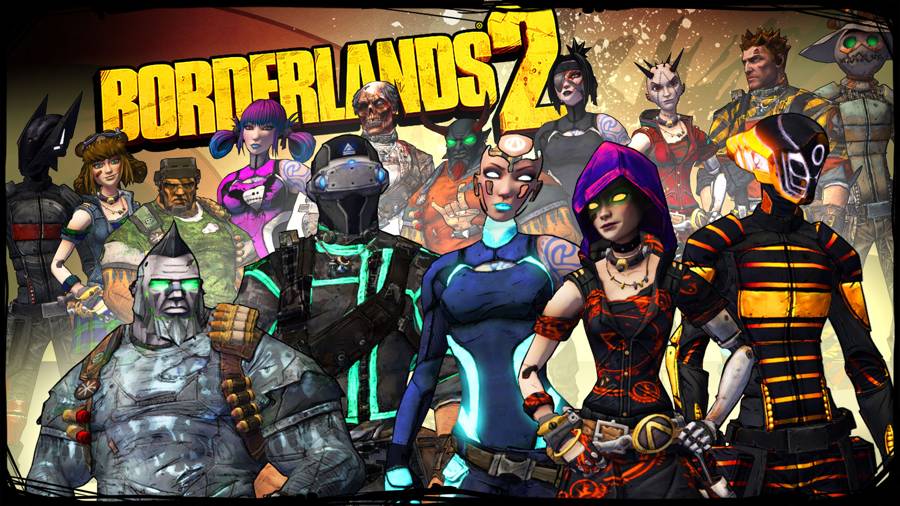It seems everyone is talking about 3D TV right now, with recent hits on the big screen such as Avatar and Tangled creating a major stir. Gone are the low-tech days of red and green cardboard glasses at the cinema, these days 3D has made impressive leaps forward into the realm of the home entertainment sector.
Increasingly, electronics manufacturers are releasing 3D TV models for all to enjoy from the comfort of their own sofa, allowing us to experience the outstanding multi-dimensional viewing that this technology has to offer.
While my previous articles titled ‘Buyers Need-To-Know Guide on 3D TV’s’ explained the ins and outs of what this technology means and what to look out for when shopping around, the following guide will focus on how 3D TV is revolutionising the gaming world.
The Exciting World of 3D Gaming
Gamers are typically the first embrace the latest technology when it comes to hardware, and 3D TV is no exception - 3D is set to revolutionise gaming by providing the most immersive environment available to date. Over 500 first person shooters, car racing, flight simulators and puzzle solving games are now available for the 3D TV and this is set to expand rapidly over the coming years.
All the major games manufacturers are now taking 3D very seriously indeed. Clearly the factor that is most exciting to gamers and producers is the new and sophisticated viewing experience that the depth and feel of 3D TV offers. Software developers thus have a wealth of fresh possibilities to explore, which opens up the gaming industry to a brand new wave of creativity.
Creating a Virtual but Realistic World of Play
For gamers it is especially important for the viewing environment to feel as real as possible, to draw the player into a virtual world that is authentic enough to be absorbing. However, realism aside, it is just as important to involve the gamer emotionally, so that users keep on coming back for more.
Games like Lemmings, Super Mario, Tanks and Worms have never relied on providing realistic or immersive worlds, preferring to offer the gamer a simple and addictive environment that taps into our enjoyment of problem solving with minimal learning investment from the player. The realistic games that 3D offers in contrast provide a unique experience of escapism and immersion that has never before been possible.
Examples of games that would benefit from a more captivating 3D world include Battlefield 1942, Medal of Honour, Half Life and Call of Duty. These games are first person shooters and generally follow a storyline, with problems to solve and fast action sequences. The gamer is the main character and the world is seen through the eyes of his on-screen avatar. The landscapes are often incredibly detailed and the player must keep a keen lookout for clues and enemies alike. For these types of games, the realism that 3D offers is everything as it will truly allow the absorbing virtual world to play out.
Top 3D TV Buying Tips for Gamers
If you’re looking to buy a 3D TV that will be used a great deal for gaming, it’s important to be aware of the key features necessary for a gripping interactive experience.
Any demanding and discerning gamer will need high resolution imagery and intense levels of detail that push their hardware to its limits. They will also want a high frame rates so that the action flows seamlessly.
All current 3D TV models must be capable of displaying 720p50, 720p60, and 1080p24 resolutions. For watching fast moving images when playing games as well as viewing sports broadcasts and action flicks, the refresh rate of the TV is critical.
The minimum refresh rate for a 3D TV is 120Hz, but this may be insufficient for gamers and sports addicts. As a rule of thumb, 240Hz is adequate and of course from here on, the higher the better.
Plasma technology may be older than that of LCD/LED screens, but when it comes to 3D TV they currently boast a major advantage - Plasma TV screens have an estimated refresh rate of around 600Hz. While LCD/LED’s are hot on their heels, they do not always come standard with this capability.
LCD/LED TV’s tend to have higher contrast ratios and brighter screens however, so in an ideal world a gamer would choose an LCD/LED screen with a very high refresh rate. Fortunately, LG have announced that they will be releasing a more than adequate 480Hz LCD model this year.
Conclusion
With the astounding viewing ability that 3D TV offers, gamers are sure to take this technology to a new level in terms of interactive experience. The good news is that prices of 3D TV’s are falling steadily towards the cost level of standard LED TV’s, so they are now within the grasp of most dedicated gamers. All in all, the constant hunger for greater realism from the gaming sector may prove to be a driving force for 3D TV uptake.






 Superior Human: Sci
Superior Human: Sci Assassin’s Creed: Unity guide – Sequence 5 Memory 1: The Silversmith – Kill the Thugs
Assassin’s Creed: Unity guide – Sequence 5 Memory 1: The Silversmith – Kill the Thugs What was responsible for the Watch Dogs delay?
What was responsible for the Watch Dogs delay? Borderlands 2 Guide: Boom And Bewm Challenge Guide
Borderlands 2 Guide: Boom And Bewm Challenge Guide Uncharted 3 Chapter 6 Treasure Locations
Uncharted 3 Chapter 6 Treasure Locations